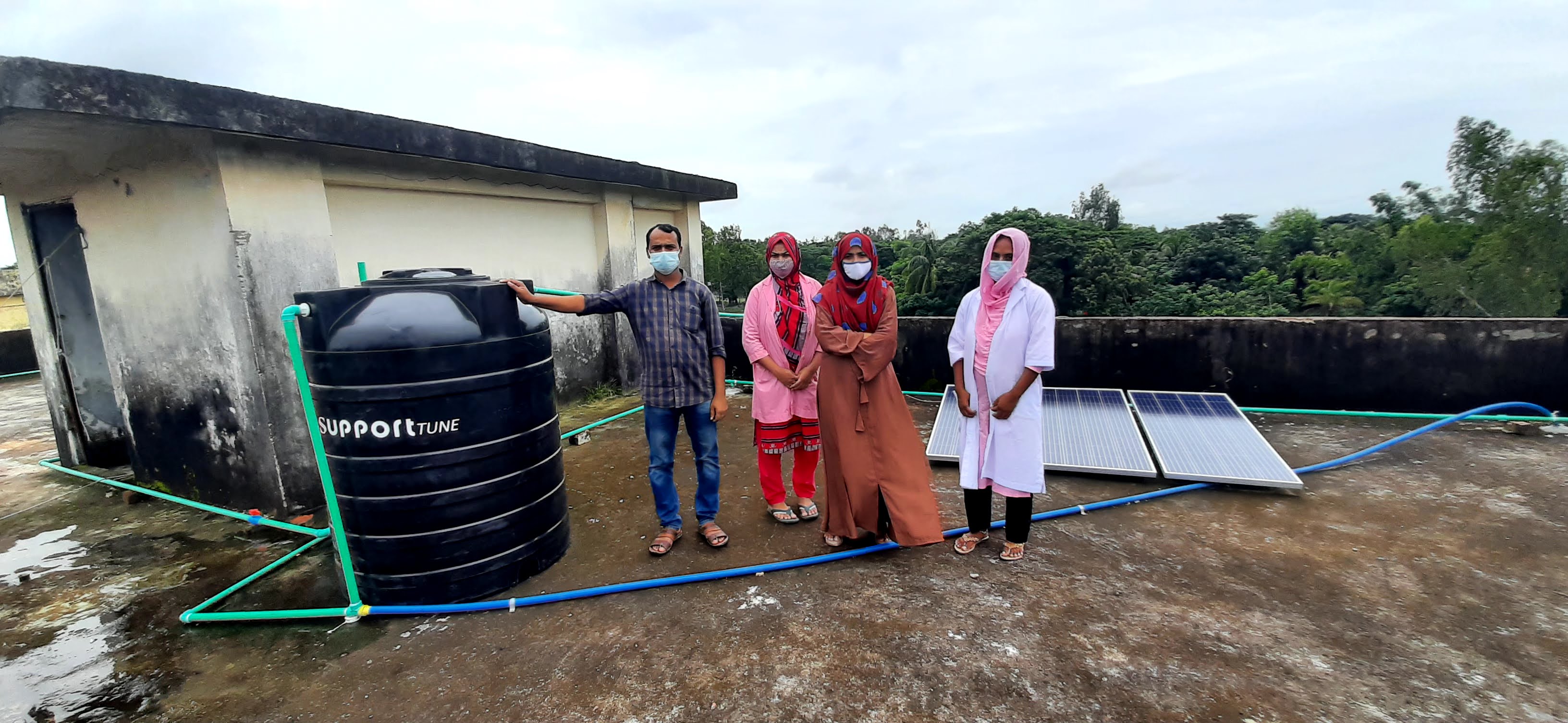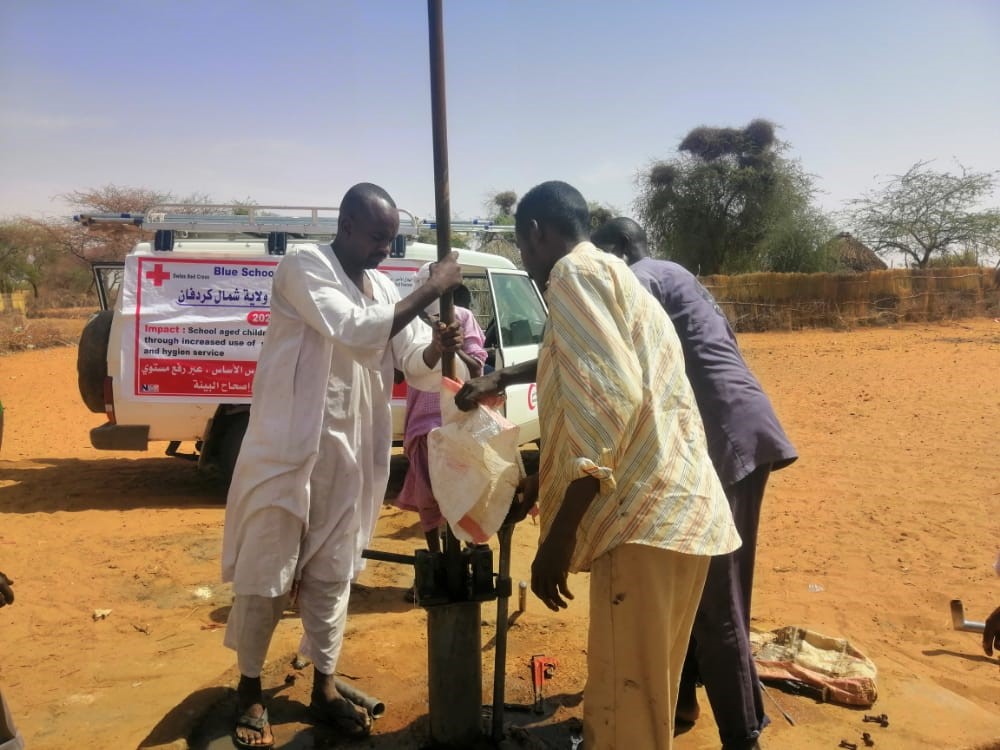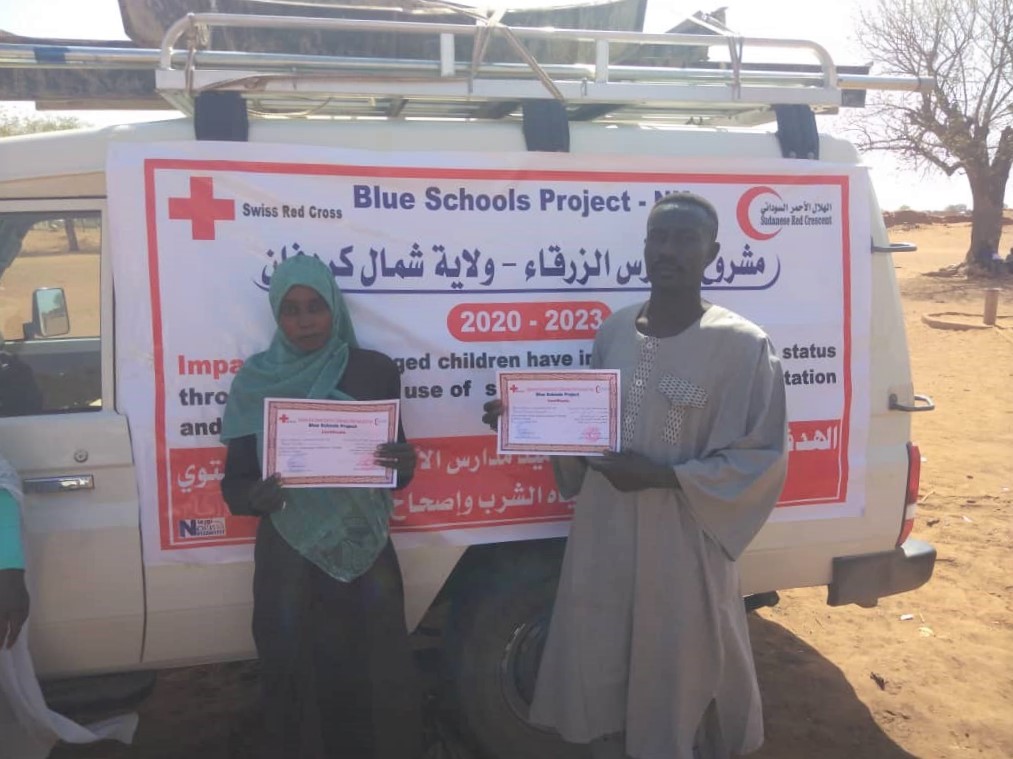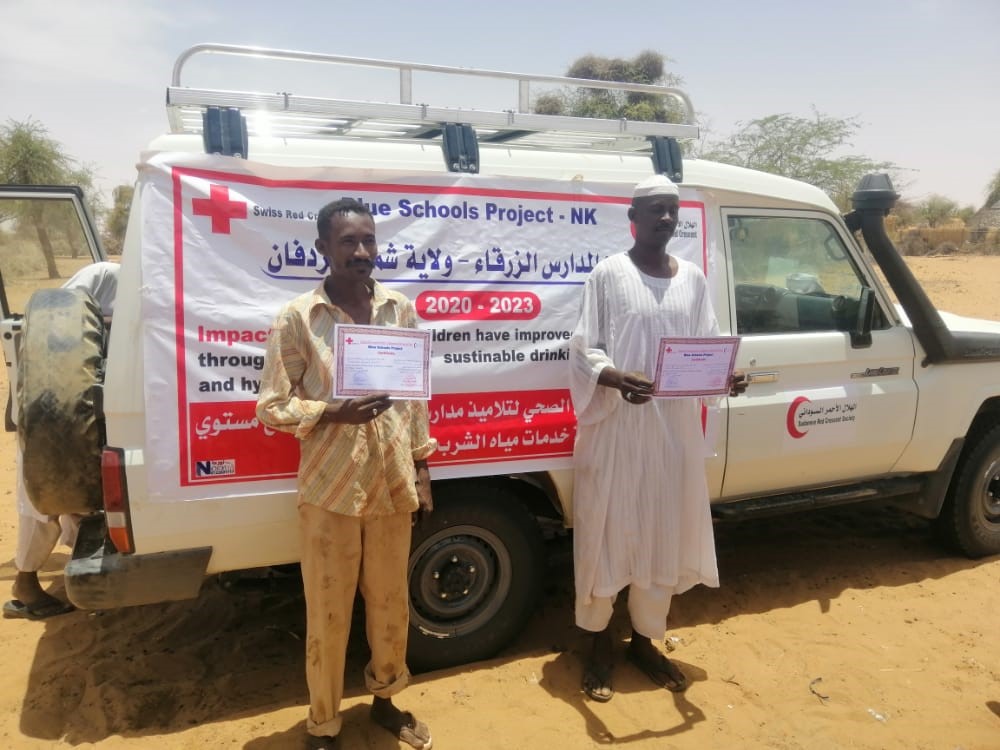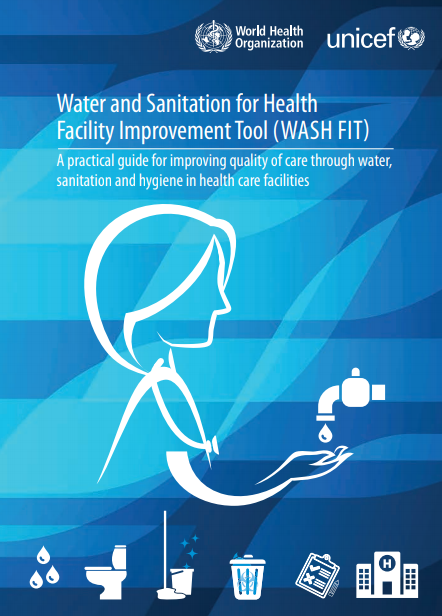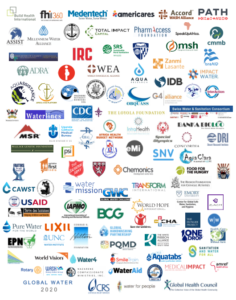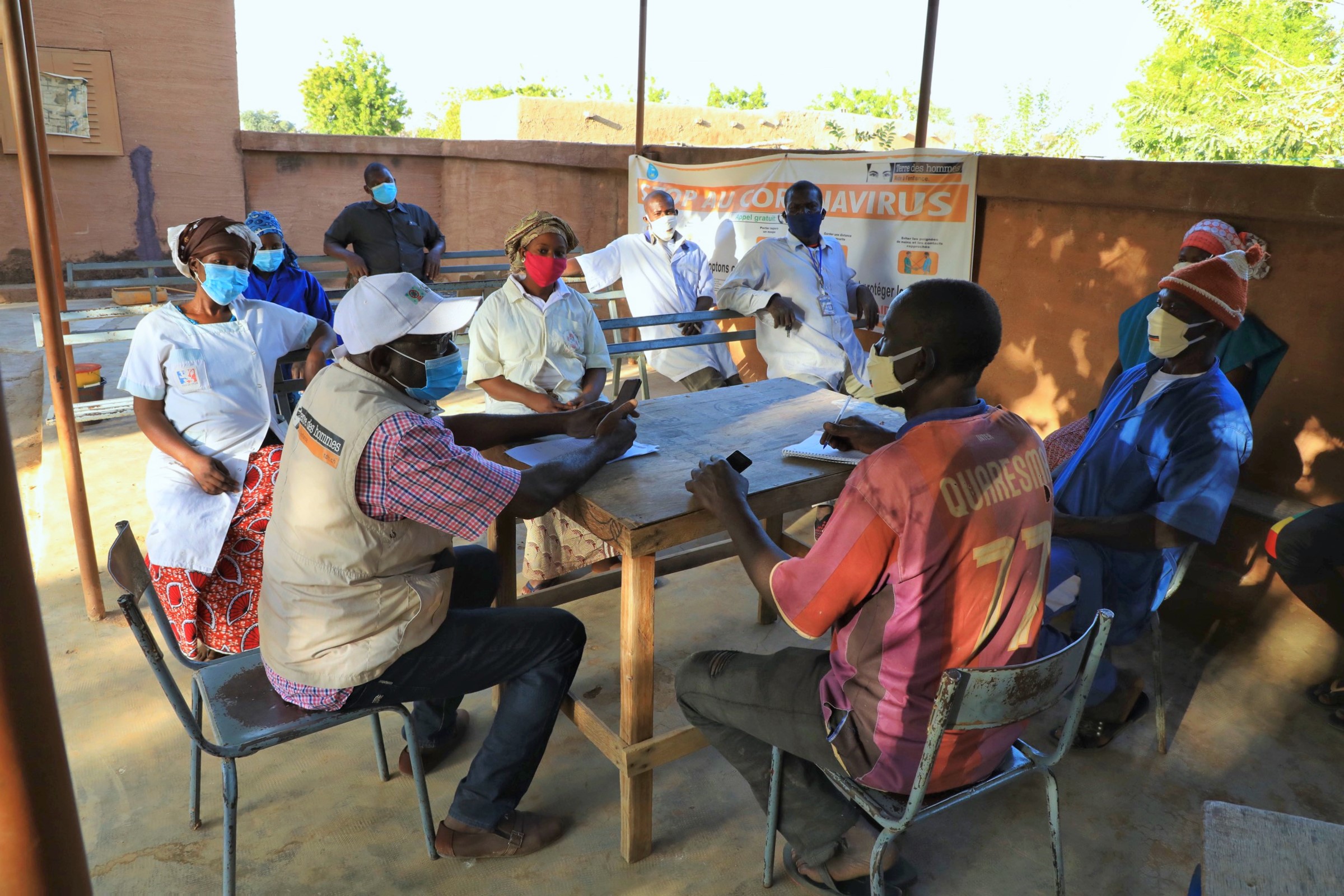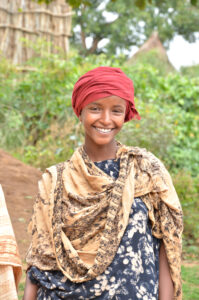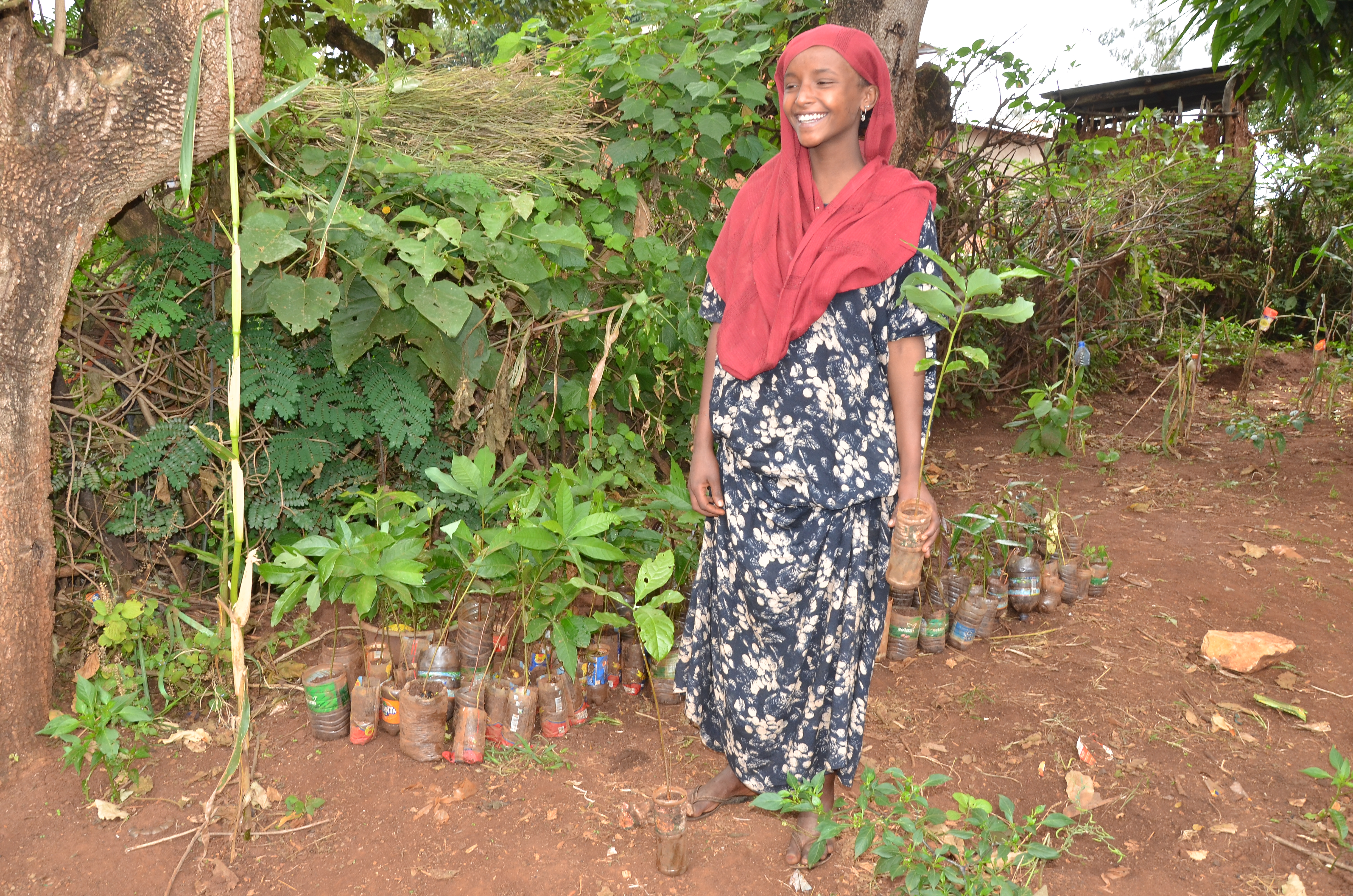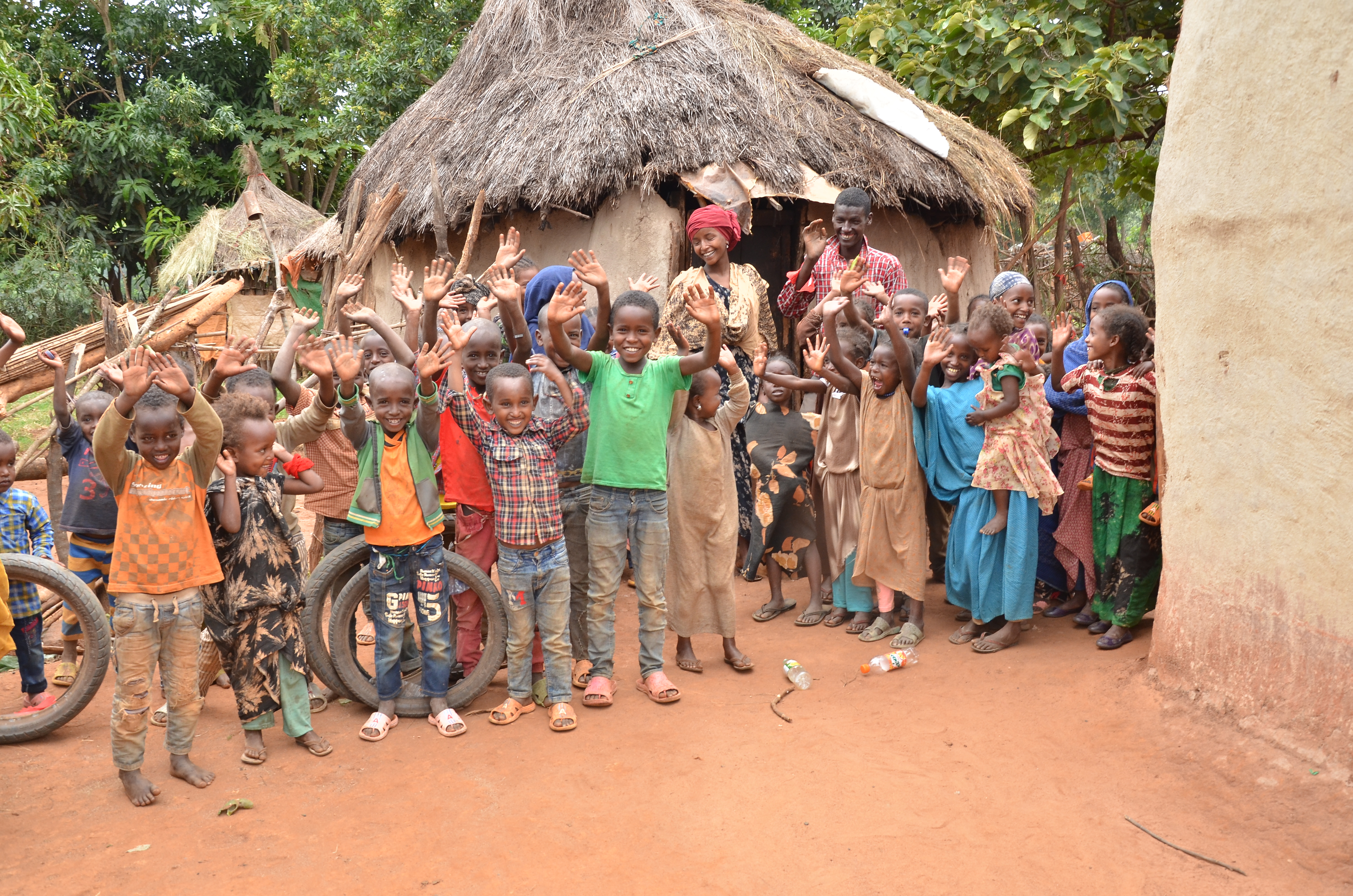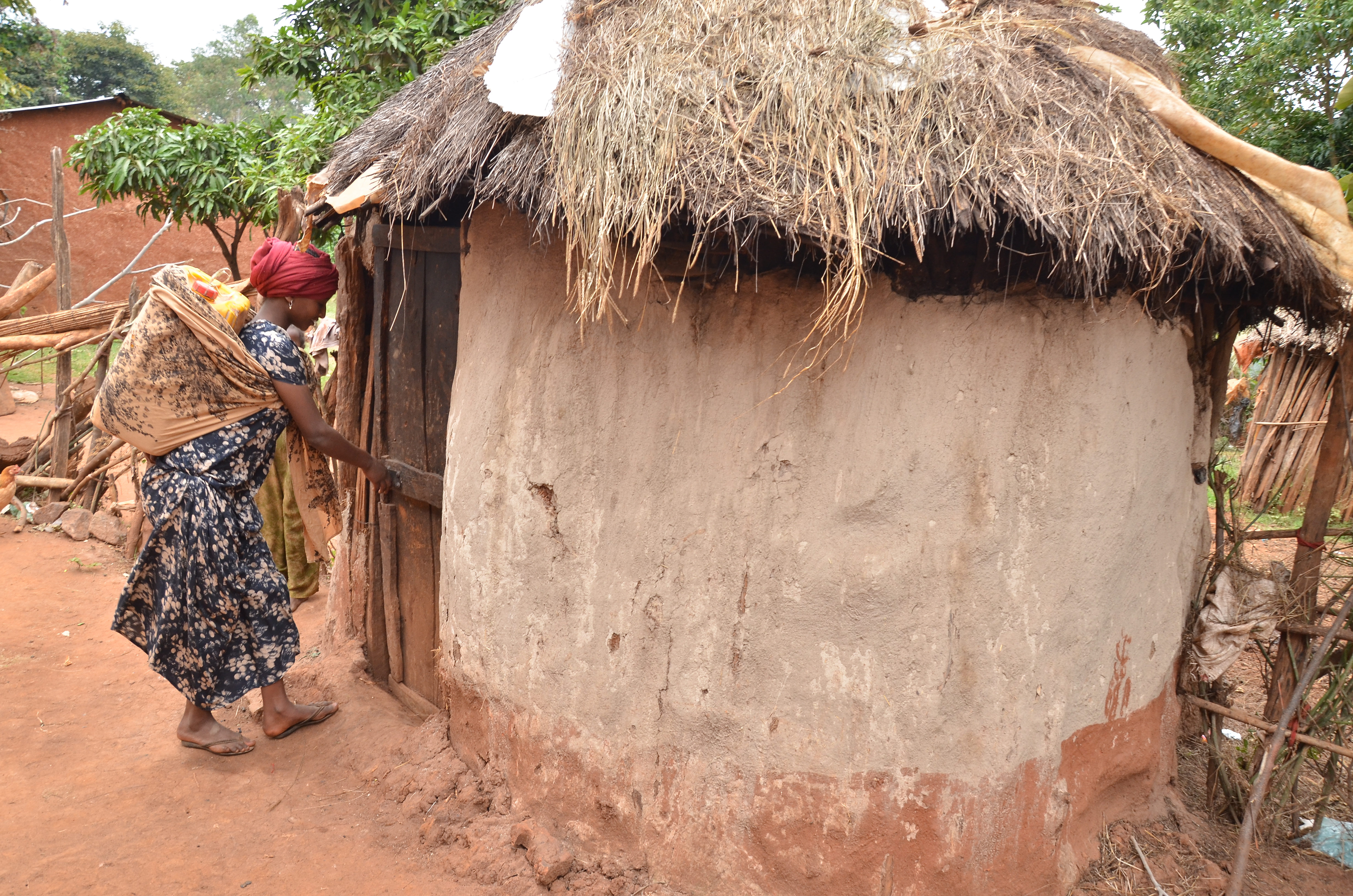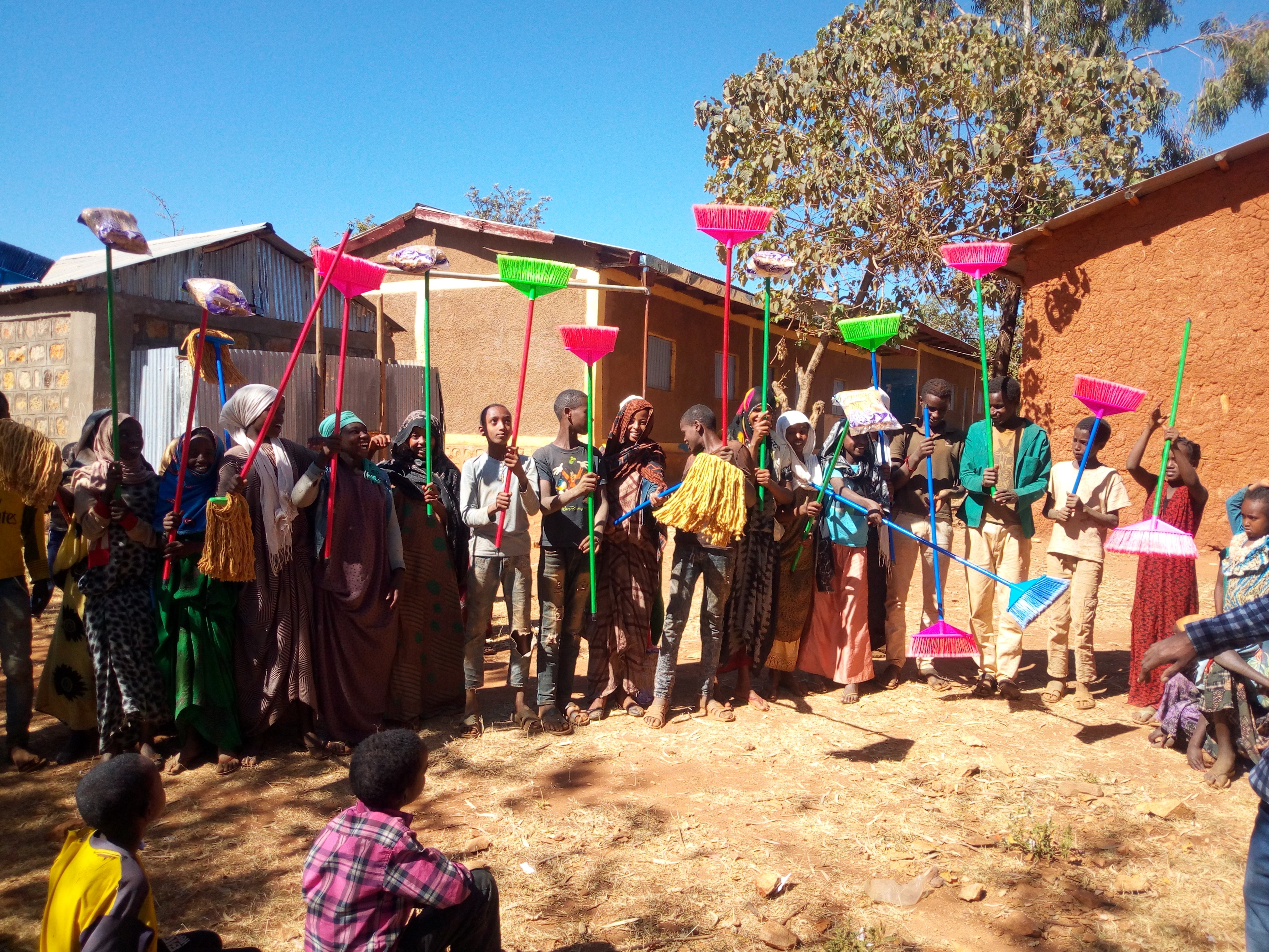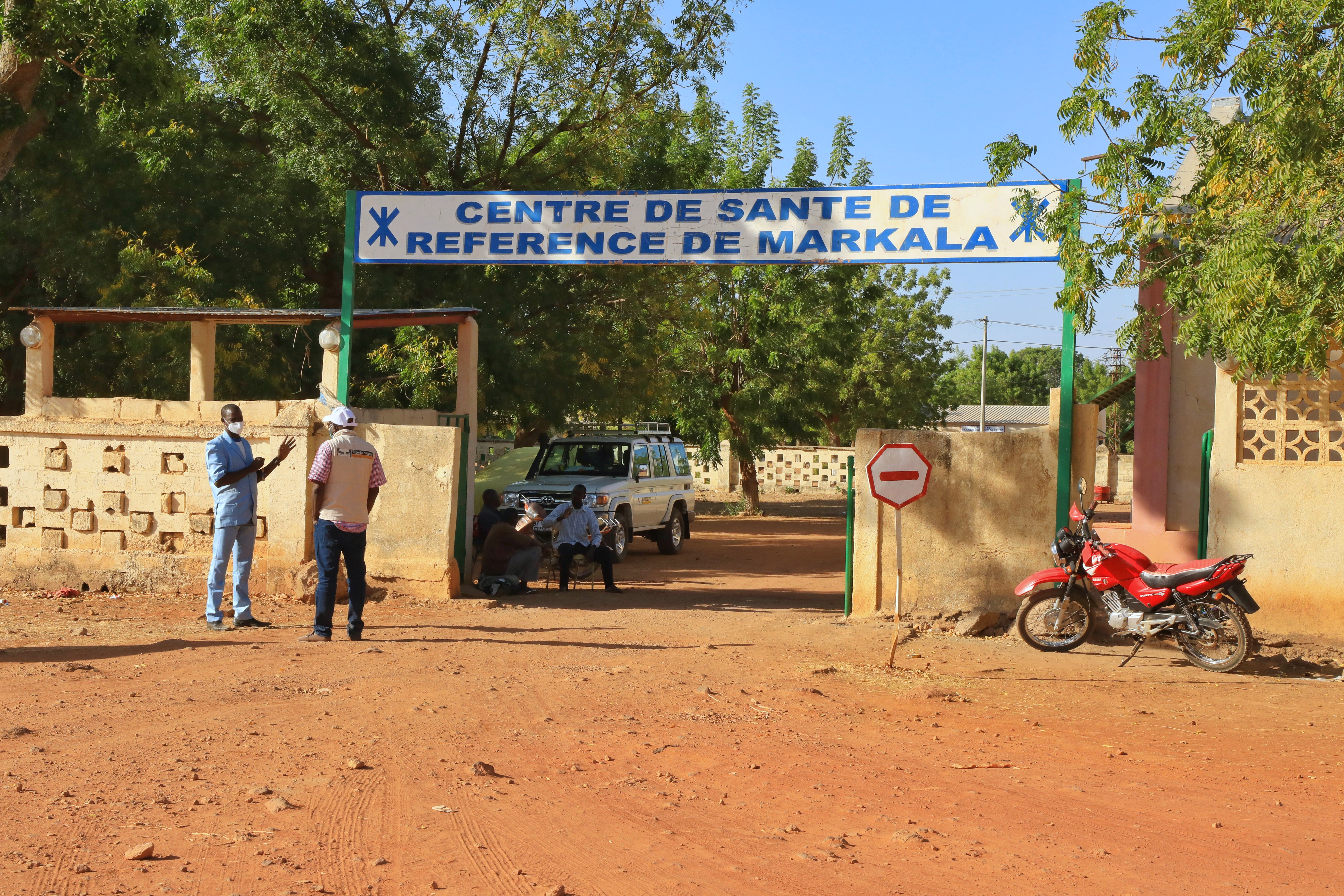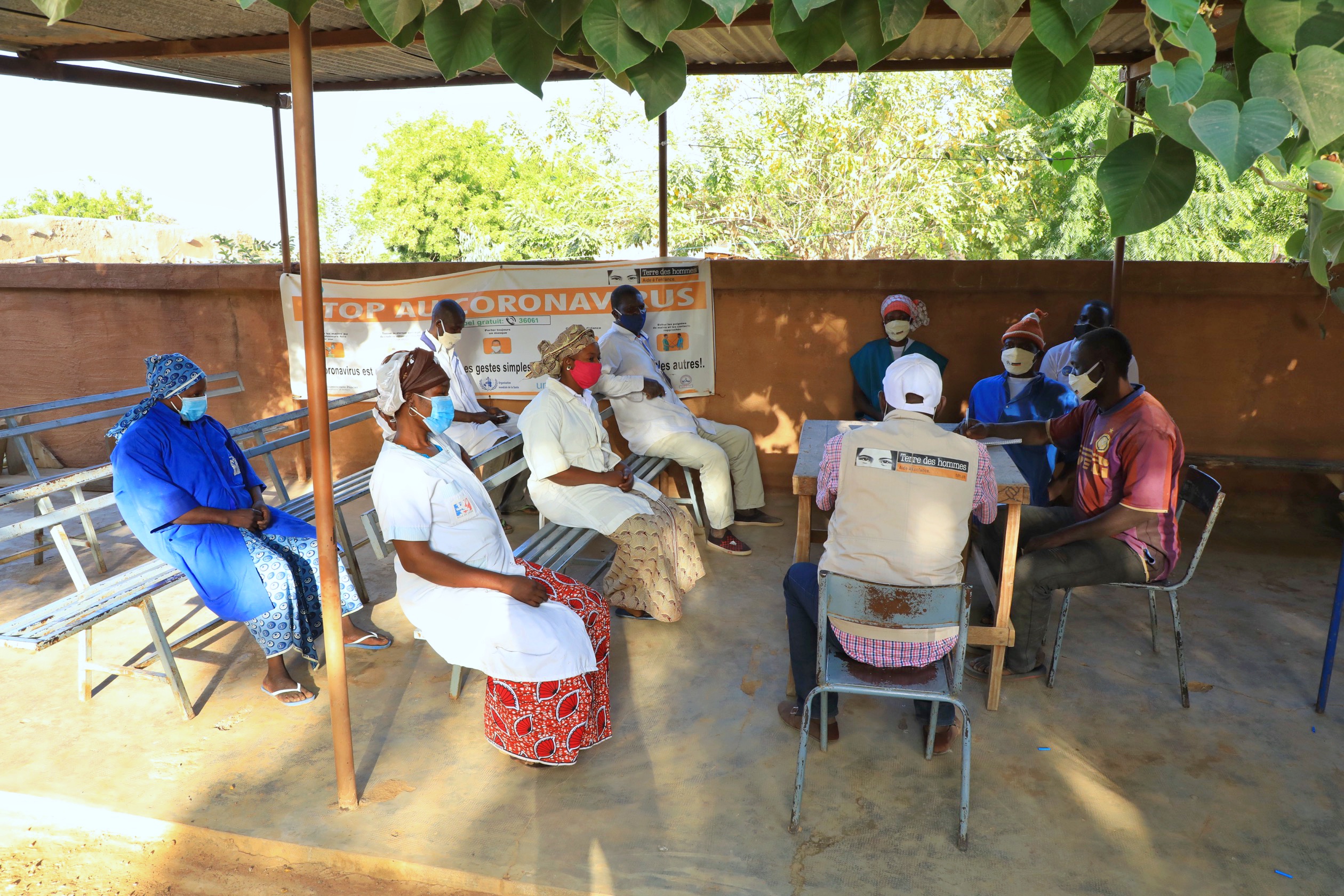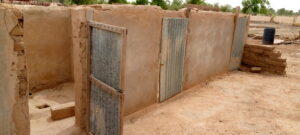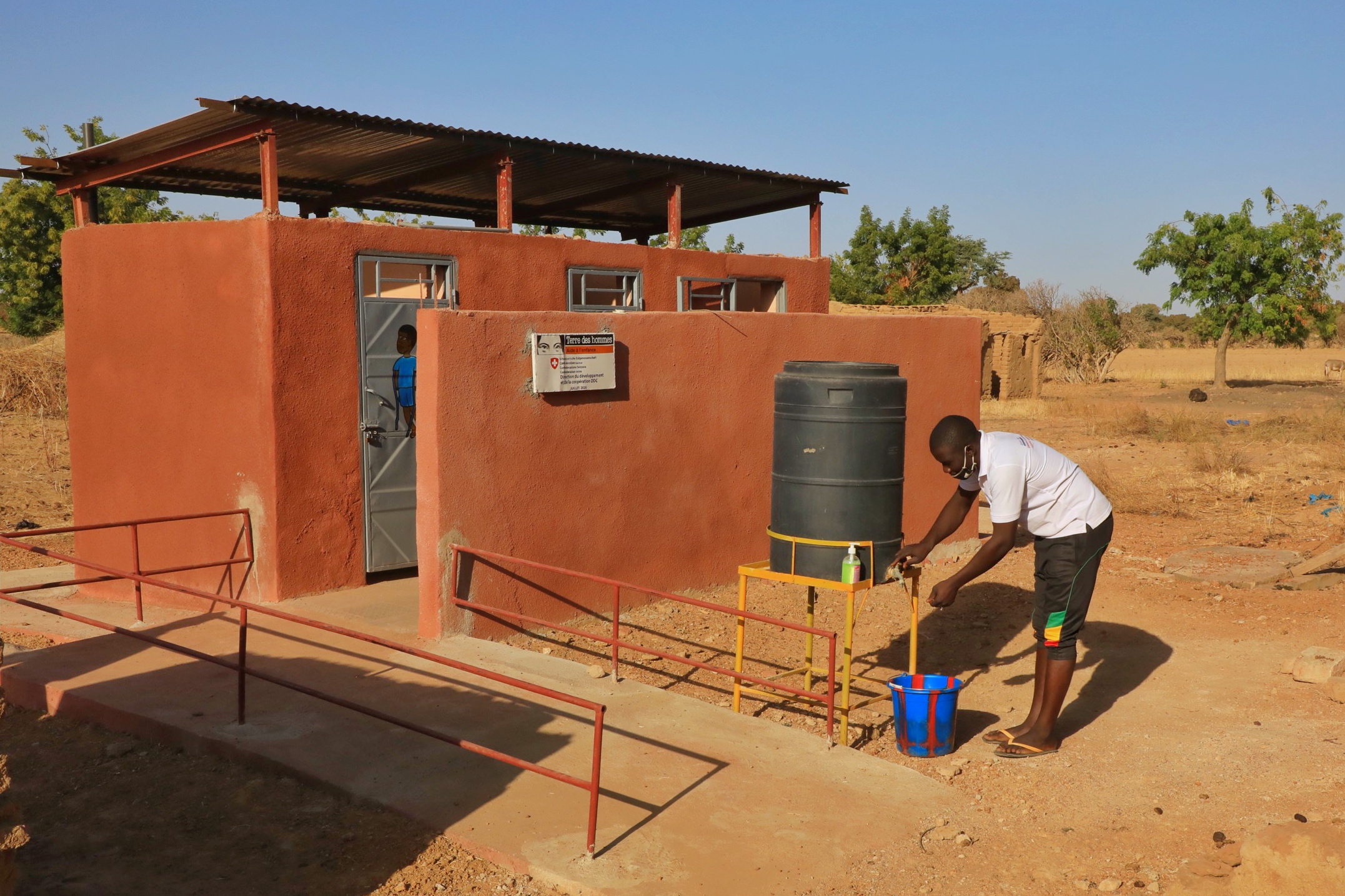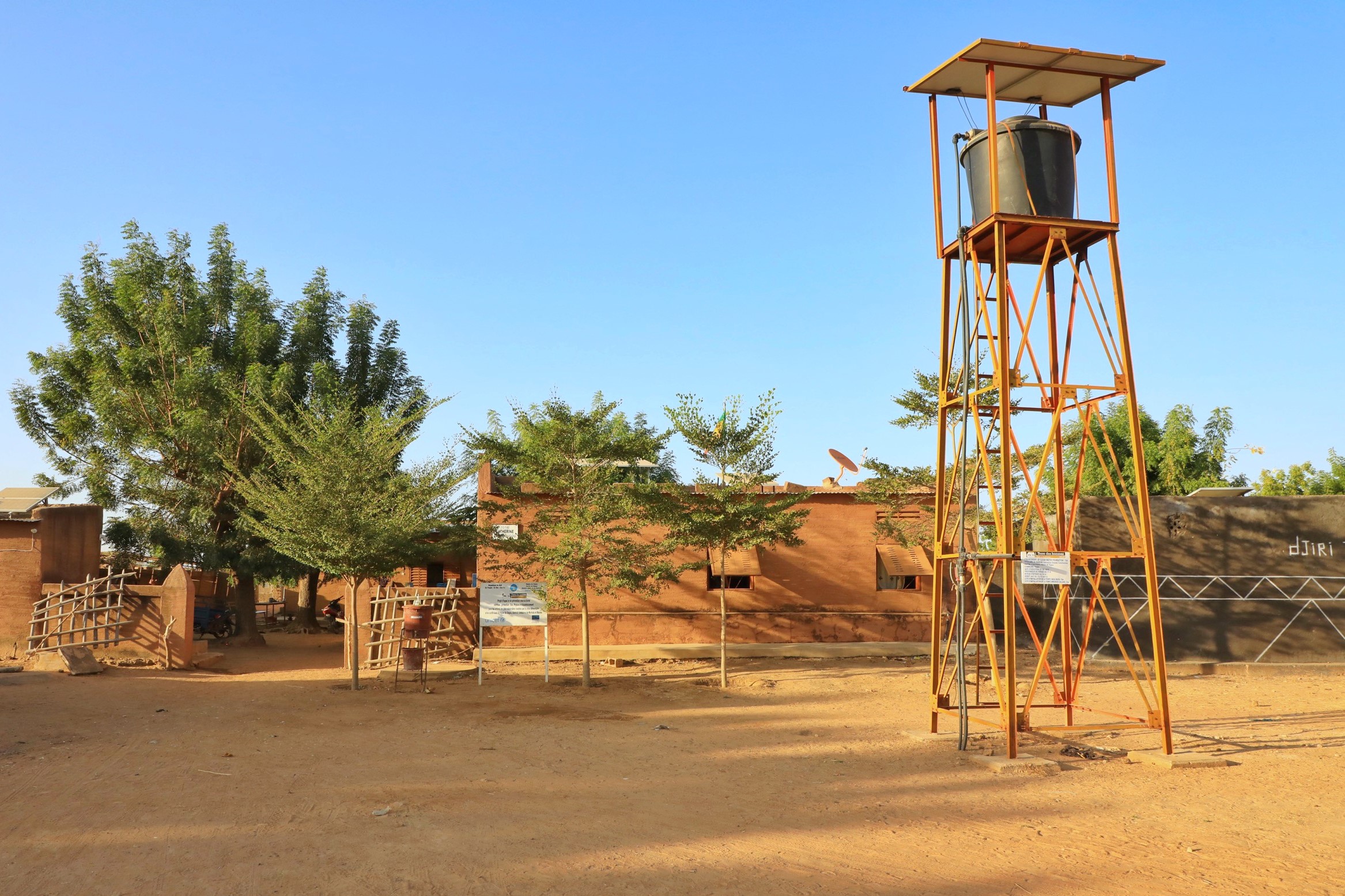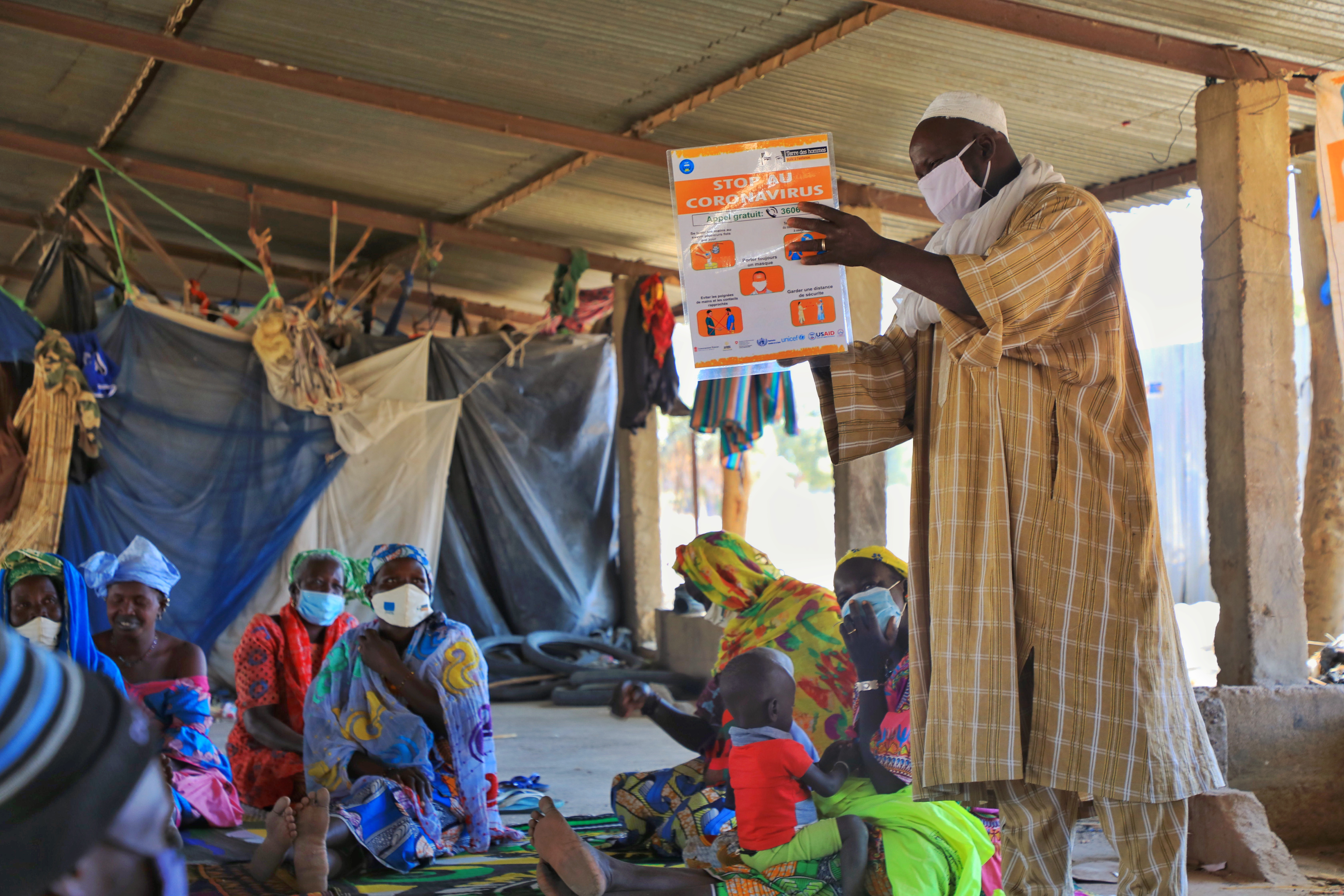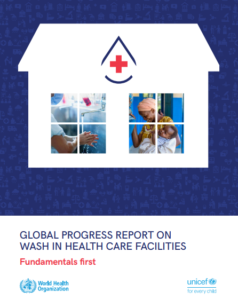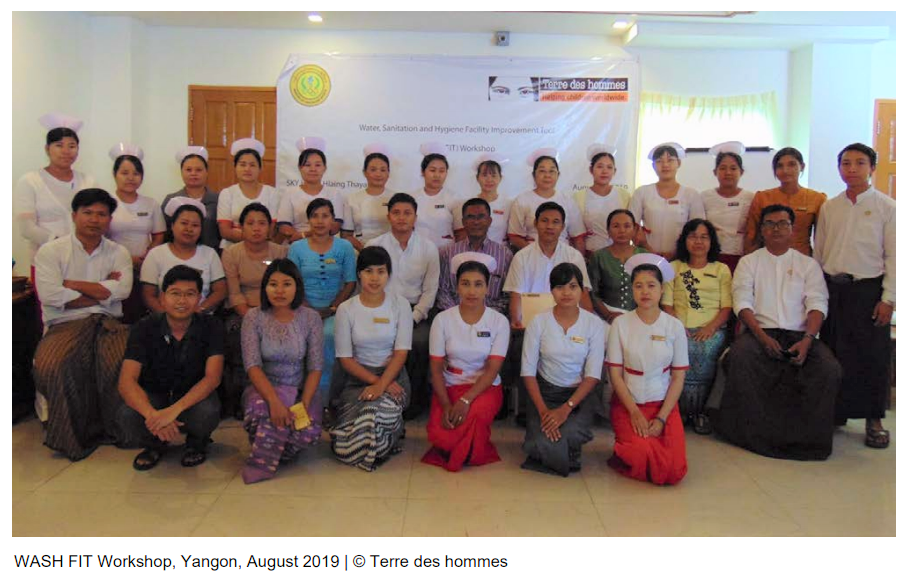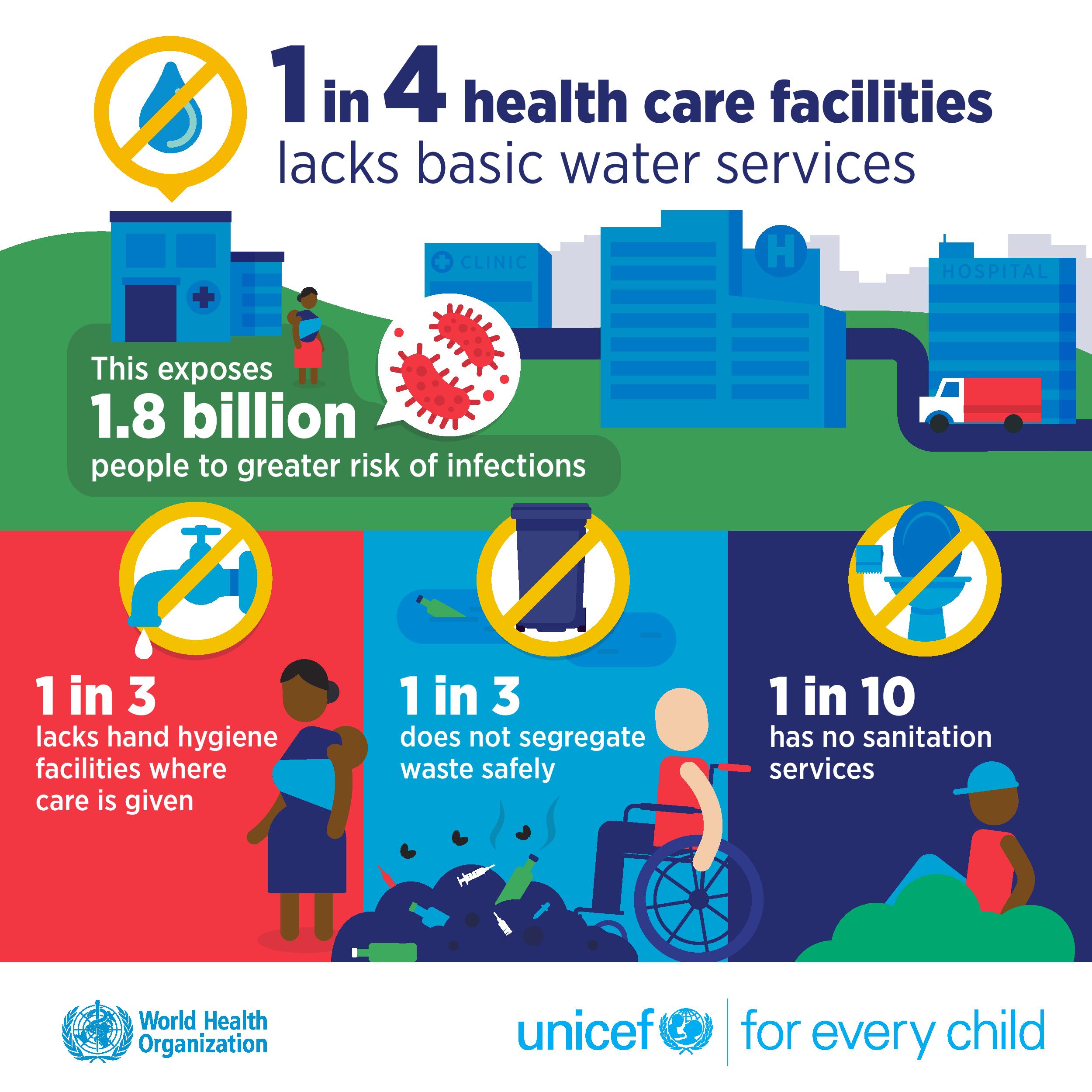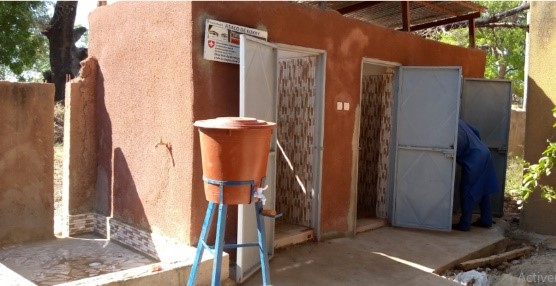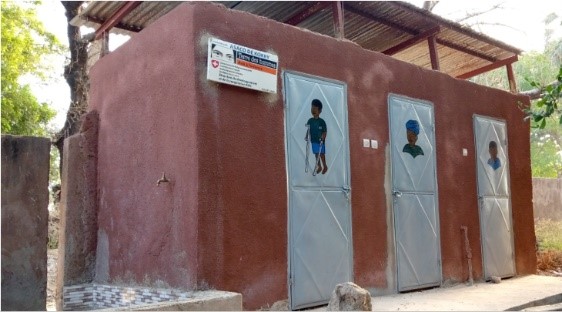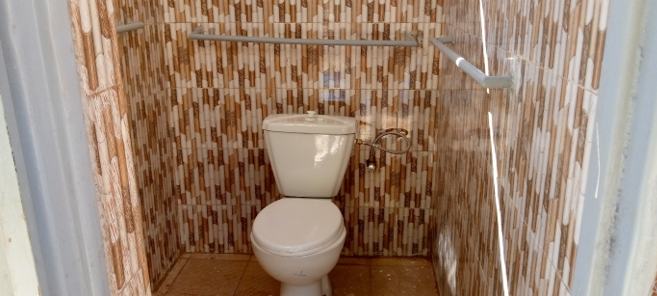(version française ci-dessous)
Contributors: Laafia Project Team, Idrissa Moussa, Jacques Louvat, Lucie Leclert, Ramesh Bohara
Photo Credits: Abdoul Konaté
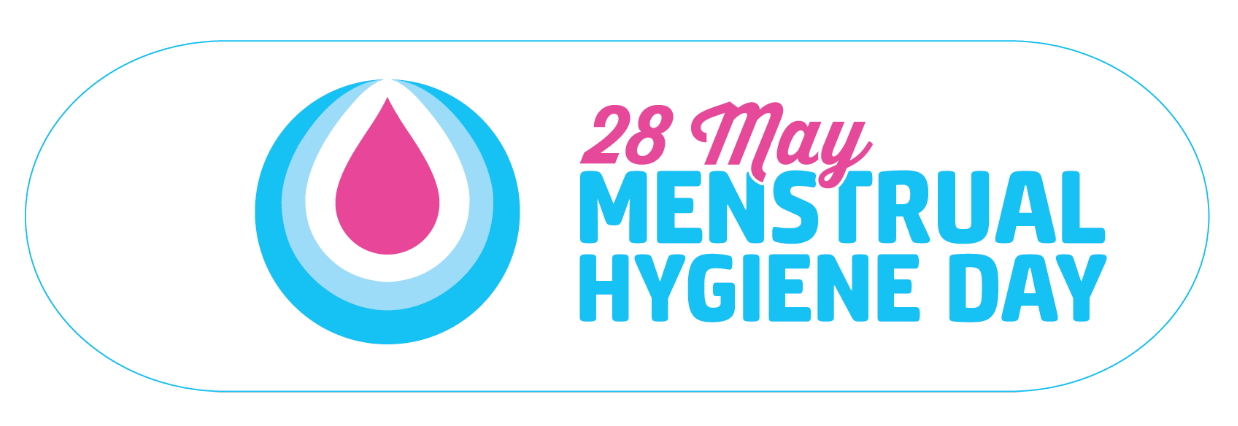
Over 800 million women and girls menstruate every day; Yet across the globe, they face barriers to properly manage their periods in dignity. Without doubt, the COVID-19 pandemic has further worsened these barriers. Annually on 28 May, the world observes Menstrual Hygiene Day (MHDay) to highlight the importance of and advocate for good menstrual health and hygiene (MHH). The theme of this year’s Menstrual Hygiene Day is: “Action and Investment in Menstrual Health and Hygiene.”
The Swiss Water and Sanitation Consortium (SWSC) member organizations are promoting Menstrual Health and Hygiene in schools as part of the “Blue Schools” approach in projects in seven countries, with co-funding from the Swiss Agency for Development and Cooperation (SDC). The approach includes training for girls, boys and teachers towards breaking the taboo on menstruation and addressing stigma, ensuring access to basic sanitation to provide a safe space for MHH, sustainable sanitary pad supply in schools as well as safe waste management and disposal. The SWSC members also engage in advocacy with the relevant local and national authorities for prioritizing MHH interventions in schools and in health care facilities as part of WASH interventions, with a focus on unlocking targeted and sustainable investments to ensure institutionalization of MHH.
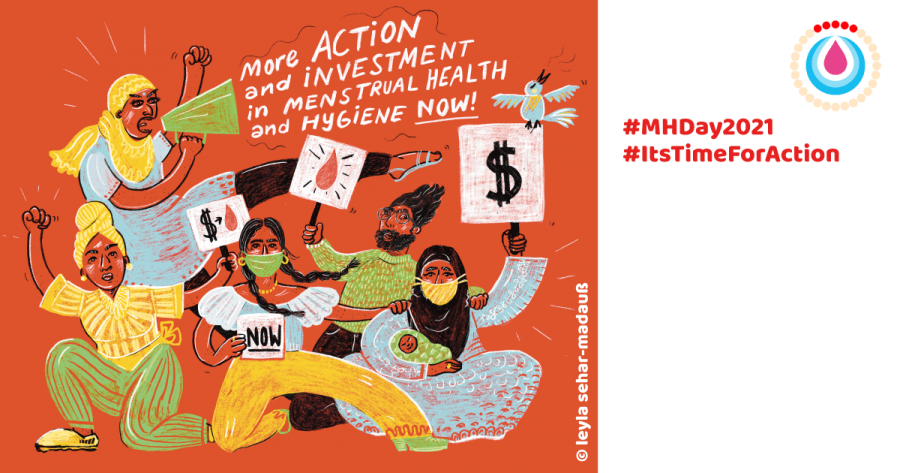
The SWSC aims to enhance the learning experience for 65’000 girls and boys in 175 schools in seven countries in Africa and Asia by improving WASH, menstrual health and hygiene, and waste management services while promoting school gardening and environmental activities.
With the third phase of the SWSC (2020-2023) in full implementation mode, projects are now rolling out activities, with encouraging stories emerging from the field.
Breaking the taboo in Burkina Faso
LAAFIA is a rural sanitation and hygiene project in the Gnagna province in eastern Burkina Faso, implemented by Helvetas under the SWSC. The "Blue Schools" approach is implemented in six schools in the communes of Manni and Coalla. The project team, in collaboration with the provincial technical services of basic education, organise information events on MHH. The objective is to contribute to the improvement of hygiene practices in schools by reinforcing the knowledge of girls and boys in school on this subject, which has long been considered a taboo. About 1,500 students in six schools were informed and sensitised on MHH. In each school, girls who already have their period are provided with reusable MHH kits and guidance on how to safely use them.
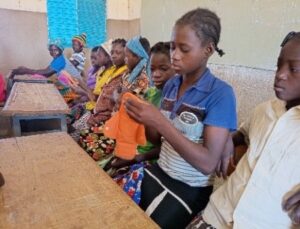
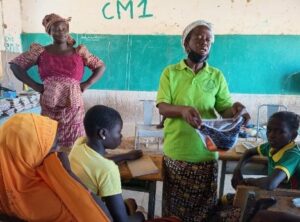
Positive Feedbacks
During visits of the project teams in the schools, girl leaders did not hide their enthusiasm about the usefulness of the reusable pads provided in the MHH kits. The testimony of Fadima, a pupil in the 2nd class at Néiba School speaks for itself:
"Before, I used to double up my skirts and underwear and hope that it would cover up. But unfortunately, I was obliged to stay at home because if I came to school there was a good chance that it would overflow. And very often when I tried to go to school, I had to go home at recess and come back later. With the pads provided in the kit, I don't have this problem anymore. Even if I wear a pad, people don't know it.”
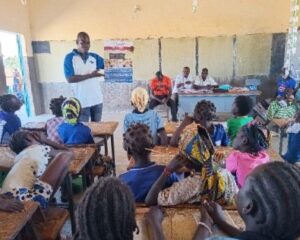 For education staff, the approach offers hands-on tools to address MHH and opportunities for linking it with the regular life skills curriculum in schools and further project activities. According to the teachers in Neiba School, the distribution of the pads and the MHH kits has considerably reduced girls' absences from school.
For education staff, the approach offers hands-on tools to address MHH and opportunities for linking it with the regular life skills curriculum in schools and further project activities. According to the teachers in Neiba School, the distribution of the pads and the MHH kits has considerably reduced girls' absences from school.
Celebrating MHDay in Niger
Several of the SWSC members organize outreach activities on the occasion of MHDay, including Swissaid Niger, which is teaming up with a network of WASH journalists to prepare the celebrations for MHDay in the country.
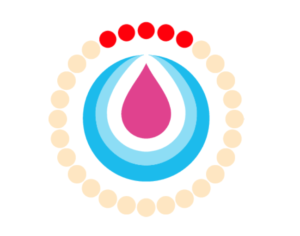
(English version above)
Action et investissement dans l'hygiène et la santé menstruelles
Contributors: Laafia Project Team, Idrissa Moussa, Jacques Louvat, Lucie Leclerc, Ramesh Bohara
Photo Credits: Abdoul Konaté

Plus de 800 millions de femmes et de filles ont leurs règles chaque jour, et pourtant, à travers le monde, elles se heurtent à des obstacles pour gérer correctement leurs menstruations dans la dignité. Sans aucun doute, la pandémie de COVID-19 a encore aggravé ces contraintes. Chaque année, le 28 mai, le monde célèbre la Journée de l'hygiène menstruelle (MHDay) afin de souligner l'importance d'une bonne hygiène et santé menstruelles et de plaider en leur faveur. Cette année, le thème de la Journée de l'hygiène menstruelle est : "Action et investissement dans l'hygiène et la santé menstruelles".
Les organisations membres du Consortium Suisse pour l’Eau et l'Assainissement (SWSC) font la promotion de la gestion de l'hygiène menstruelle (GHM). Elles interviennent dans les écoles de sept pays, dans le cadre de l'approche "Écoles bleues", avec un cofinancement de la Coopération Suisse au Développement (DDC). L'approche comprend une formation pour les filles, les garçons et les enseignants visant à briser le tabou de la menstruation et à lutter contre la stigmatisation, à garantir l'accès à des installations sanitaires de base afin de fournir un espace sûr pour la GHM, la fourniture de serviettes hygiéniques dans les écoles, ainsi que la gestion et l'élimination sûres des déchets. Les partenaires du SWSC s'engagent également dans des actions de plaidoyer auprès des autorités locales et nationales compétentes. L'objectif est de donner la priorité aux interventions de la GHM dans les écoles et les établissements de soins de santé, dans le but de débloquer des investissements ciblés et durables pour assurer l'institutionnalisation de la GHM.

Le SWSC vise à améliorer l'expérience d'apprentissage de 65 000 filles et garçons dans 175 écoles de sept pays d'Afrique et d'Asie en améliorant les services WASH, la santé et l'hygiène menstruelle et la gestion des déchets tout en promouvant le jardinage scolaire et les activités environnementales.
Avec la troisième phase du SWSC (2020-2023) en pleine mise en œuvre, les projets déploient maintenant leurs activités, avec des témoignages encourageants émergeant du terrain.
Briser le tabou au Burkina Faso
LAAFIA est un projet d'assainissement et d'hygiène en milieu rural dans la province de la Gnagna, dans l'est du Burkina Faso, mis en œuvre par l'ONG Helvetas, dans le cadre du SWSC. L'approche "Écoles bleues" est réalisée dans six écoles des communes de Manni et Coalla. L'équipe du projet, en collaboration avec les services techniques provinciaux de l'éducation de base, organise des événements d'information sur la GHM. L'objectif est de contribuer à l'amélioration des pratiques d'hygiène dans les écoles en renforçant les connaissances des filles et des garçons scolarisés, sur ce sujet longtemps considéré comme un tabou. Environ 1 500 élèves ont été informés et sensibilisés sur la GHM. Dans chaque école, les filles qui ont déjà leurs règles reçoivent des kits de GHM réutilisables et des conseils sur la manière de les utiliser en toute sécurité.


Des réactions positives
Lors des visites des équipes de projet dans les écoles, les filles leaders n'ont pas caché leur enthousiasme quant à l'utilité des serviettes réutilisables fournies dans les kits de GHM. Le témoignage de Fadima, une élève de seconde à l'école Néiba, est éloquent :
"Avant, j'avais l'habitude de doubler mes jupes et mes sous-vêtements en espérant que cela me couvre. Mais malheureusement, j'étais obligée de rester à la maison parce que si je venais à l'école, il y avait de fortes chances que ça déborde. Et très souvent, quand j'essayais d'aller à l'école, je devais rentrer à la maison à la récréation et revenir plus tard. Avec les serviettes fournies dans le kit, je n'ai plus ce problème. Même si je porte une protection, les gens ne le savent pas".
 Pour le personnel de l'éducation, l'approche offre des outils pratiques pour aborder la GHM, et des possibilités de la relier au programme scolaire habituel sur l'apprentissage de la vie, ainsi qu'à d'autres activités du projet. Selon les enseignants de l'école de Neiba, la distribution de serviettes et de kits de GHM a considérablement réduit les absences des filles de l'école.
Pour le personnel de l'éducation, l'approche offre des outils pratiques pour aborder la GHM, et des possibilités de la relier au programme scolaire habituel sur l'apprentissage de la vie, ainsi qu'à d'autres activités du projet. Selon les enseignants de l'école de Neiba, la distribution de serviettes et de kits de GHM a considérablement réduit les absences des filles de l'école.
Célébration du MHDay au Niger
Plusieurs membres du SWSC organisent des activités de sensibilisation à l'occasion du MHDay, notamment Swissaid au Niger, qui fait équipe avec un réseau de journalistes WASH pour préparer les célébrations du MHDay dans le pays.



